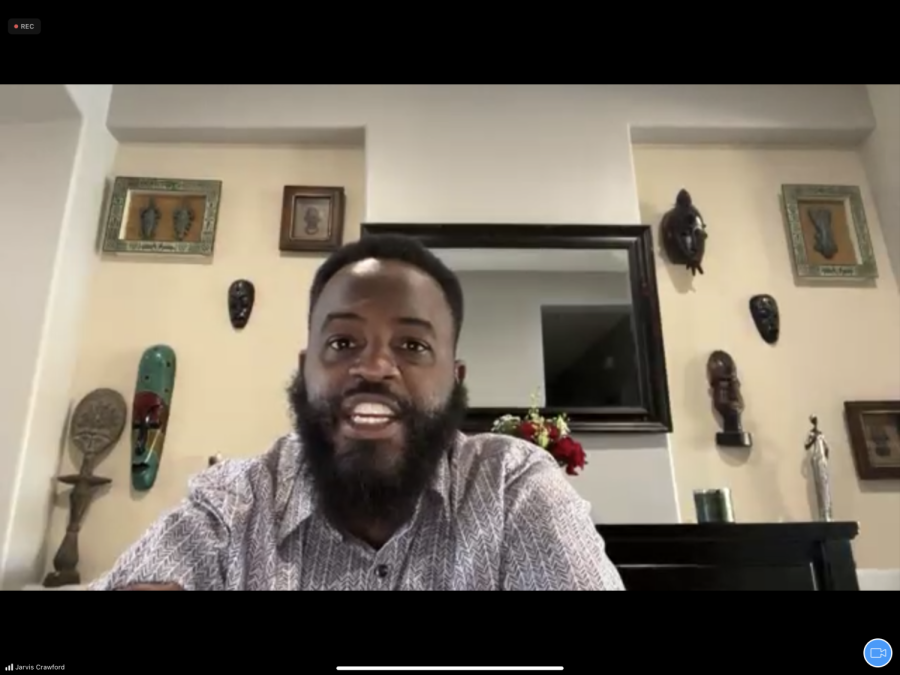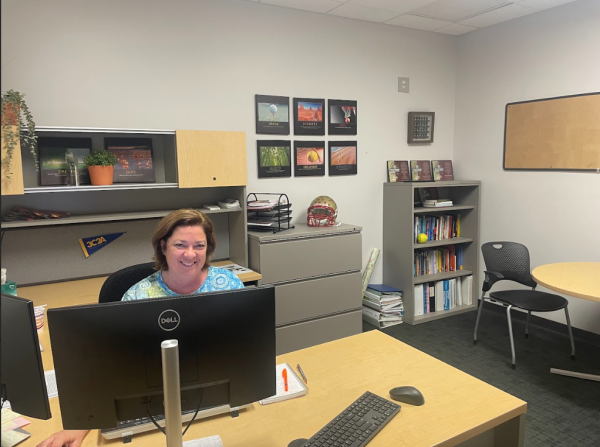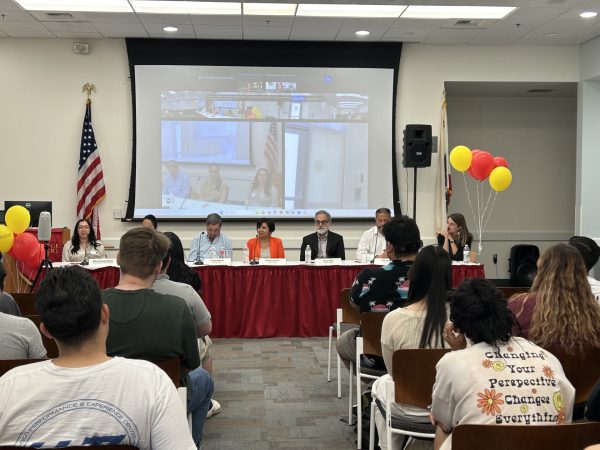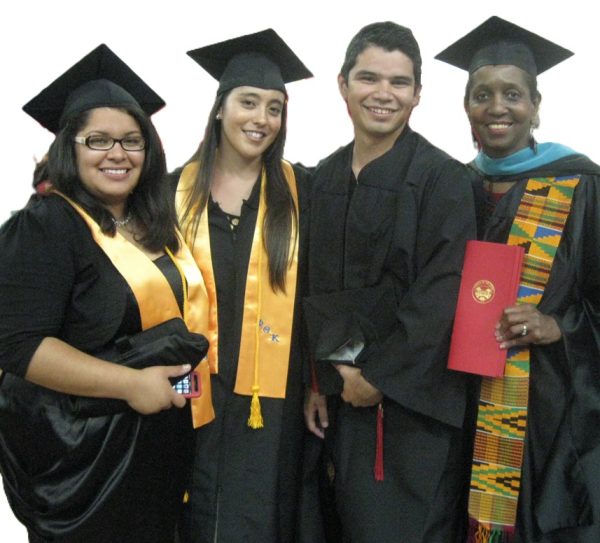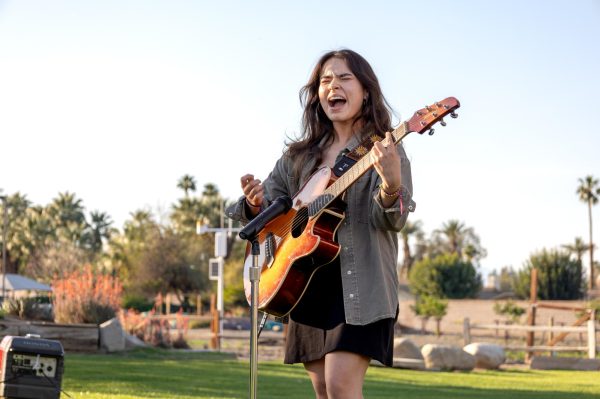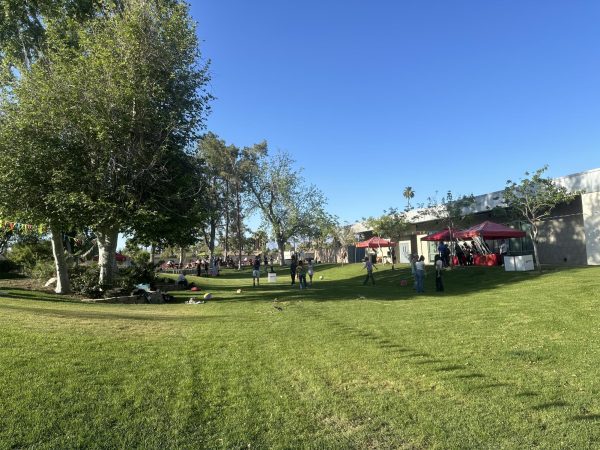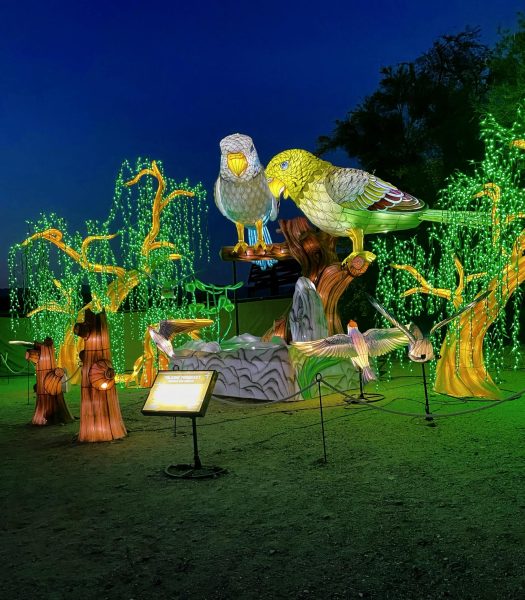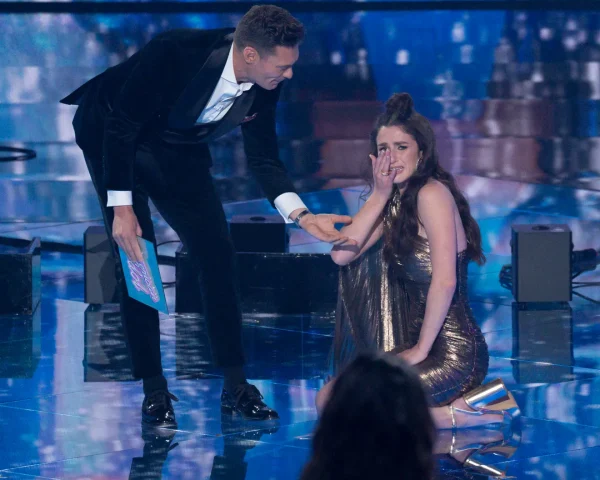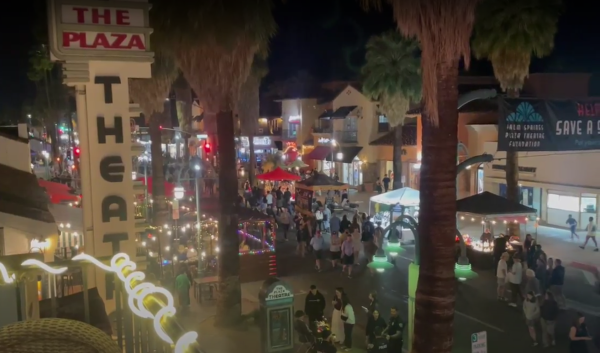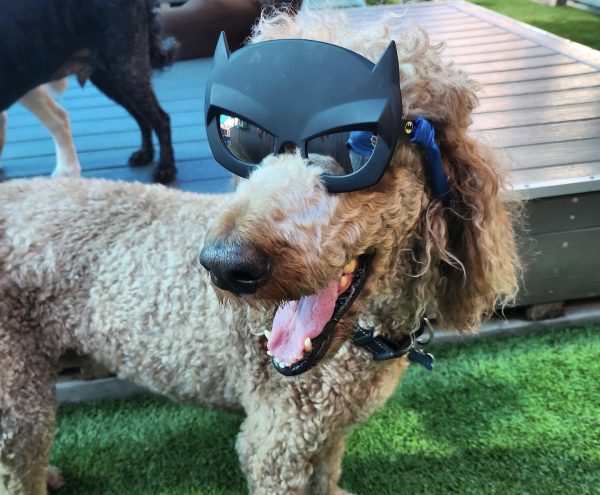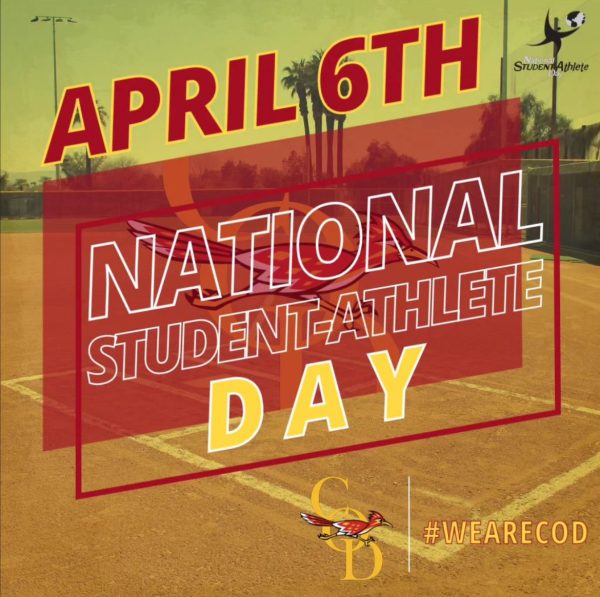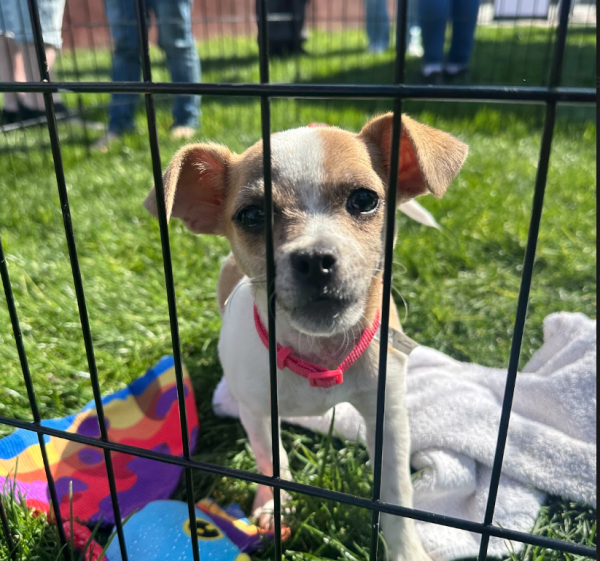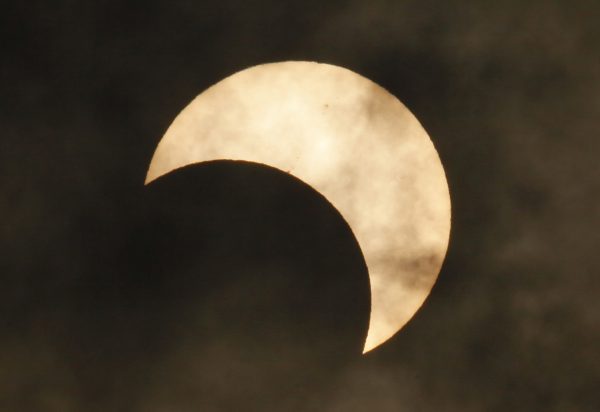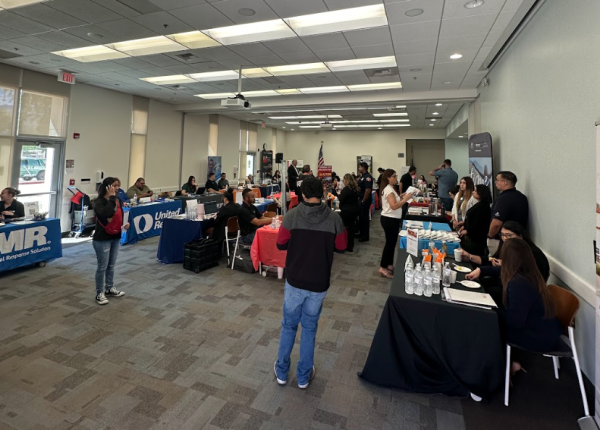CODTalks: Jarvis Crawford discusses African-American history in the valley
Photo Courtesy of The Chaparral/Holly Hinman. Jarvis Crawford speaking about African-American history in the Coachella Valley.
In honor of Black History Month, College of the Desert has kicked off its spring lineup of CODTalks, a series of informative presentations organized by experts to further educate and inspire students of all ages. African-American History in the Coachella Valley was the first of five events hosted by the Office of Student Life in collaboration with the Black Student Success Center.
The webinar’s key speaker, Jarvis Crawford, is the community center manager of Palm Springs and President of the Palm Springs Black History Committee. He quotes that his job is to share the backgrounds of black pioneers, and he passionately does so. He proudly stands in the fifth generation of African-Americans in the valley. His ancestors migrated from the South in the 1940s and 1950s and resided in section fourteen of the Agua Caliente tribal lands. These shared grounds with local natives formed the foundation of African-American history to be made in the Coachella Valley, starting with Lawrence Crossley.
“History some folks will never know unless they dig deep and dive in to grab this history, and there’s more [history] to be known about what happens in our valley.”
— Jarvis Crawford
Lawrence Crossley was a handyman-turned-business partner to an early Palm Springs entrepreneur, Prescott T. Stevens. Stevens and Crossley purchased acres of land to invest in property together. Crossley made connections effortlessly, and because of this, he met John Nobles. Little is known of Nobles, aside from his migration from the Midwest to the barren Indio farmlands where he harvested crops from lettuce to peanuts. Nevertheless, he impacted the City of Indio, with John Nobles Avenue later established in his honor. Crawford states, “Nobles became a person to make a Mecca for families; so he brought families in to live with him at his ranch in Indio.” Similarly, Lawrence Crossley had invested in enough land, offering acres to African-Americans. They were prohibited from purchasing property at the time, with the majority of the black population living on tribal grounds. These were the developing days of the Coachella Valley and the two trailblazers who made room for their ethnicity in a predominately split Latino and Native American area.
Approximately one decade later, in the 50s, when Palm Springs became a Hollywood playground, the city’s mid-century modern blueprint was partly thanks to Paul R. Williams, a world-renowned black architect who designed several American landmarks such as the LAX Airport and set his sights on the downtown Palm Springs stretch as well, the El Mirador Hotel and the Palm Springs Tennis Club to name a few. In the political sphere, in 2003, Ron Oden was sworn in as the first African-American mayor of Palm Springs and the first openly gay African-American mayor in California. African-Americans who were also elected mayor are Percy Byrd of Indian Wells and Waymond Fermon of Indio. In a relative callback to John Nobles, Troy Strange was elected as the first African-American City Council Member of Indio.
“This is history you don’t hear about,” Crawford remarked, closing his presentation. “History some folks will never know unless they dig deep and dive in to grab this history, and there’s more [history] to be known about what happens in our valley.” He then briefly pointed out the significance of Cesar Chavez, the Mexican-American icon who established the National Farm Workers Association and passed through the east valley on multiple occasions. “We have some great folks here in our community that have been pioneers, way-makers,” and, truthfully, we only acknowledge a fraction of this history. The following week’s presentation held by Dr. Mzilikazi Kone, the Black Experience of Latin America, provided more insight on this matter.
If you are interested in getting involved with the Black Student Success Center, the Black 365 Knowledge Bowl will take place on Feb. 24 at 12 p.m., followed by the Black History Parade and Soul Food Celebration.
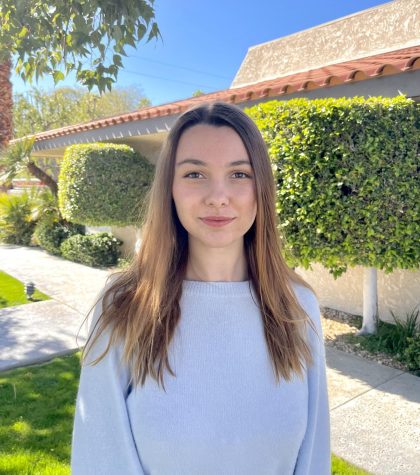
Holly is a second-year student majoring in Film, Television, and Electronic Media (AA-T) at College of the Desert. She has experience in print and broadcast...

